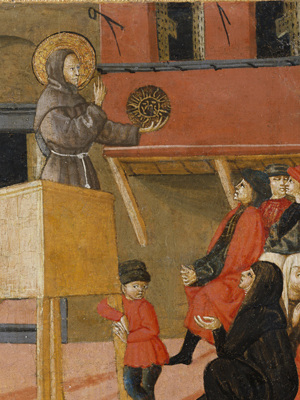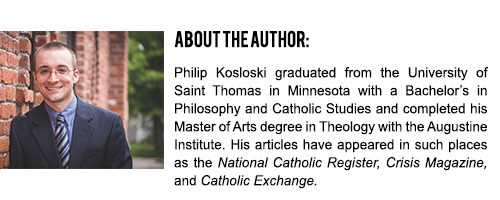
The next spiritual work of mercy is one that few of us like to engage in: “admonish the sinner.” This work of mercy is highly misunderstood and many of us do not know how to “admonish” in a Christian context.
Admonish the Sinner Let us first look at the biblical roots of this work of mercy. Jesus provides His own explanation: "Jesus said, 'If your brother sins against you, go and tell him his fault, between you and him alone. If he listens to you, you have gained your brother. But if he does not listen, take one or two others along with you, that every word may be confirmed by the evidence of two or three witnesses. If he refuses to listen to them, tell it to the church; and if he refuses to listen even to the church, let him be to you as a Gentile and a tax collector. Truly, I say to you, whatever you bind on earth shall be bound in heaven, and whatever you loose on earth shall be loosed in heaven'" (Mathew 18:15-18). Jesus says we should first seek out our brother in private. First of all, this means that admonition is a private affair, rather than a public exposition. Additionally, Jesus calls the other person "your brother." This highlights the fact that admonition is best done in the context of an established relationship. A person is much more likely to listen to a trusted friend or relative, than a street preacher. While the message might be the same and true, it does not mean it will be effective. Saint Paul echoes these words when he writes, "If any one refuses to obey what we say in this letter, note that man, and have nothing to do with him, that he may be ashamed. Do not look on him as an enemy, but warn him as a brother" (2 Thessalonians 3:14). So the next time you feel called to admonish someone for the sake of their own salvation, remember to do so in private and in the context of an established relationship. Otherwise, it is very likely it will fall on deaf ears. To Bear Wrongs Patiently The fourth spiritual work of mercy is simple, but difficult in practice. We all know how to be charitable and patient to those who are pleasant, and kind to us. However, our initial reaction is not "patience" when a rude person cuts in line in front of us after waiting for an hour at the DMV. Jesus had this to say in response, "'You have heard that it was said, "An eye for an eye and a tooth for a tooth." But I say to you, Do not resist one who is evil. But if any one strikes you on the right cheek, turn to him the other also; and if any one would sue you and take your coat, let him have your cloak as well; and if any one forces you to go one mile, go with him two miles.'" (Matthew 5:38-41) Jesus’ instruction to "turn the other cheek" is radically different than what the world (and our own sinful hearts) want to do. We feel that when someone hurts us in some way we must "return the favor." One of the many saints who gave us examples on how to perform this work of mercy is Saint Thérèse of Lisieux. While in the convent her first "victory" consisted in "bearing wrongs patiently." She narrates in her Story of a Soul, "A small jar, left behind a window, was found broken. No one knew who had put it there, but our Mistress was displeased, and, thinking I was to blame in leaving it about, told me I was very untidy and must be more careful in future. Without answering, I kissed the ground and promised to be more observant. I was so little advanced in virtue that these small sacrifices cost me dear, and I had to console myself with the thought that at the day of Judgment all would be known." Similarly, Saint Thérèse was tested when a fellow nun annoyed her, "For a long time my place at meditation was near a Sister who fidgeted continually, either with her Rosary, or something else; possibly, as I am very quick of hearing, I alone heard her, but I cannot tell you how much it tried me. I should have liked to turn round, and by looking at the offender, make her stop the noise; but in my heart I knew that I ought to bear it tranquilly, both for the love of God and to avoid giving pain. So I kept quiet, but the effort cost me so much that sometimes I was bathed in perspiration, and my meditation consisted merely in suffering with patience." Going forward, let us learn from the example of Saint Thérèse and combat the sinful desires in our heart. We might want to strike back at someone, even for such a small thing as being annoying in the adoration chapel, but we must not let our fallen nature overtake us. We must allow God to penetrate our heart and transform it into something new. Read the Entire Series
0 Comments
Your comment will be posted after it is approved.
Leave a Reply. |
MASS SCHEDULE
Tuesday - Friday: 8:00 AM Saturday: 4:00 PM Sunday: 8:00 AM & 10:00 AM RECONCILIATION
Saturday: 3:15 - 3:45 PM OFFICE HOURS
Monday - Thursday: 8:30 AM – 5:00 PM Friday: 8:30 AM – 12:30 PM Stay Connected with Our ParishWelcome from Our PastorWelcome to Christ the King Catholic Church! Ever since 1938 this parish has been assisting souls in their quest for deeper union with God. Our mission statement is essentially found in the stained glass window above the main altar: “For Christ our King.” Insofar as God made us and we belong to Him, we have come to... Read More
Archives
February 2021
Categories
All
|
Copyright © 2024 Christ the King Parish. All Rights Reserved.
Mailing address: 306 S. LaSalle St, Spencer, WI 54479
(715) 659-4480



 RSS Feed
RSS Feed